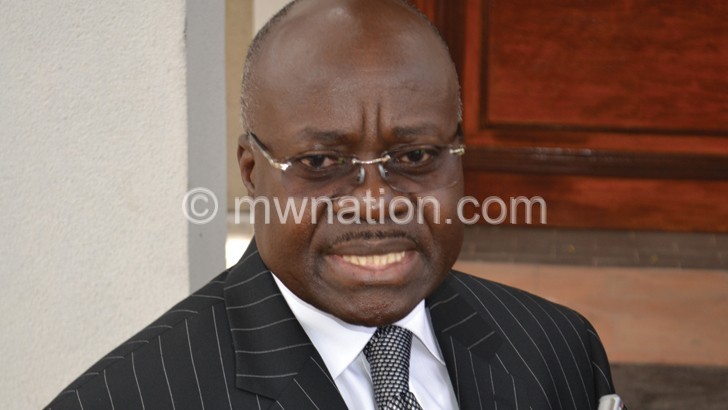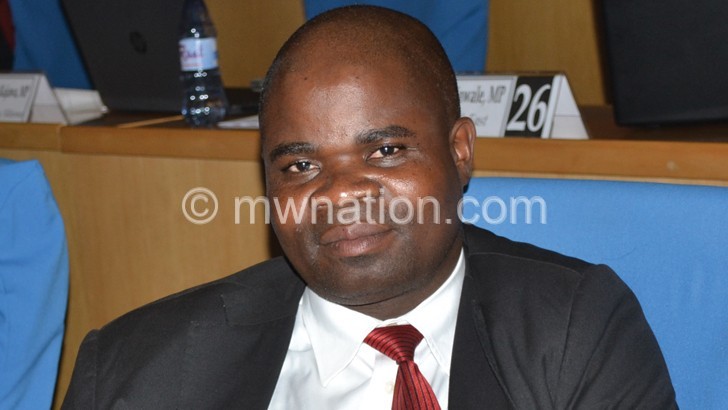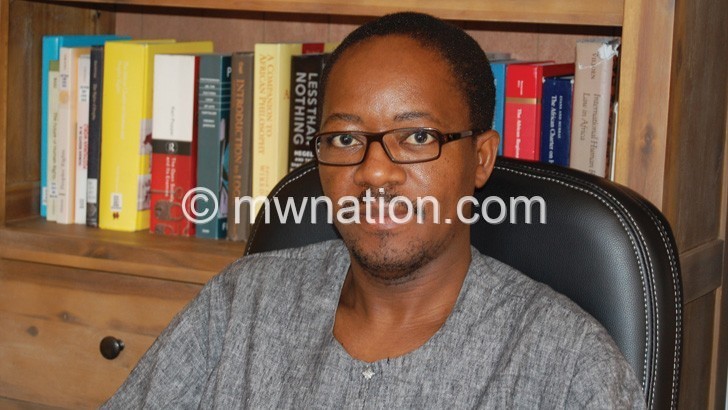Chief Justice summons stirs debate
Plans by Parliament’s Legal Affairs Committee to summon Chief Justice Andrew Nyirenda to explain how the Judiciary is handling and determining corruption cases have sparked debate among legal minds who have faulted the committee and questioned its basis.
In yesterday’s edition of The Nation, committee chairperson Maxwell Thyolera said the committee planned to call the chief justice, as the head of the Judiciary, following the recent acquittal of former Cabinet minister George Chaponda and businessperson Rashid Tayub. He said the committee was not satisfied with the way the matter was handled.

But some legal scholars have argued that the committee is overstepping its mandate as it has no authority to summon any judicial officer, let alone the Chief Justice. In a Facebook post, Edge Kanyongolo, a constitutional law expert and associate professor of law at Chancellor College, a constituent college of the University of Malawi, queried where the committee was drawing its mandate.
In a written response to an earlier inquiry from The Nation, Danwood Chirwa, a professor of law at the University of Cape Town in South Africa, said Parliament cannot summon any judicial officer to account to it for the manner he or she has exercised judicial power.
He said decisions of judicial officers provide reasons for their respective positions and are liable to appeal to a higher court up to the Supreme Court of Appeal.
Chirwa, who is also head of Department for Public Law at the university, said: “There is no provision in the Constitution which empowers a parliamentary committee or the whole Parliament to summon a judicial officer before it. The reason why there isn’t such a provision is because of the separation of powers and the principle of the independence of the Judiciary.

“It is also absurd to require the Judiciary to explain how it is fighting corruption. It is the Executive which has the responsibility to fight crime. Parliament is free to summon the heads of the Executive departments and ministries involved in crime fighting to provide any such explanation but not the Judiciary.
“The constitutional function of the Judiciary is to adjudicate legal disputes, including criminal proceedings, according to law.”
He said acquitting or convicting a person does not mean the Judiciary is fighting a particular crime, but that it found the accused person guilty or not guilty of the offence charged.
Said Chirwa: “It is important not to coerce the Judiciary into becoming a crime fighting agency of the Executive for then there won’t be an independent body to ensure that the criminal law is enforced fairly and humanely.”

But reacting to Chirwa’s assertions, Thyolera said his committee had been interacting with the Attorney General (AG), Anti-Corruption Bureau (ACB), Directorate of Public Prosecutions (DPP) and the Malawi Police Service on various issues, including fighting corruption.
He said: “We thought it is high time the Judiciary is engaged to discuss administration of the law in general and the fight against corruption in particular.”
Thyolera also insisted that his committee has powers to initiate a process to remove an errant judge under Section 119 subsections three to five of the Constitution.
On Sunday, Sunduzwayo Madise, another legal scholar who teaches law at Chancellor College, described plans to summon the Chief Justice over cases duly adjudicated by the court as “overreaching” the committee’s mandate.
Despite government’s claims of commitment on fighting corruption, the issue is increasingly alarming with several development partners expressing worry and, in some cases, withdrawing their assistance.
For instance, in December last year the country lost eligibility for the second compact of the United States of America government’s Millennium Challenge Corporation (MCC) due to, among others, untamed corruption.
At the weekend, Vice-President Saulos Chilima also blasted what he described as rampant corruption and theft in government which he said was becoming intolerable.
The European Union and Britain recently also said they were not ready to resume direct budget support to Malawi because of corruption and poor public finance management.
Ironically, President Peter Mutharika accuses the media and civil society organisations (CSOs) of exaggerating corruption in the country. This assertion is despite institutions such as Transparency International and Afrobarometer poorly ranking the country’s anti-corruption efforts.
Chaponda, a former minister of Agriculture, Irrigation and Water Development, was answering three charges of giving false information to the Anti-Corruption Bureau (ACB), influencing a public officer to misuse his position and possession of foreign currency while Tayub was answering the charge of persuading a public officer to misuse his position. They both denied the charges.
The committee’s sentiments come barely days after some CSOs faulted the graft-busting body for allegedly presenting a weaker case against Chaponda and Tayub. They further asked ACB to appeal the matter to High Court.
But in an interview with The Nation, ACB director general Reyneck Matemba said people should leave the ACB and other agencies pursuing anti-corruption matters to work without interference.
There was no immediate comment from the Judiciary as registrar of the High Court and Supreme Court of Appeal Agnes Patemba was not available.





